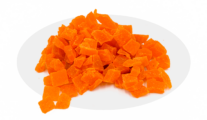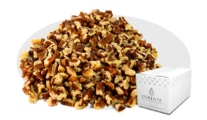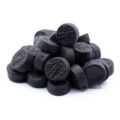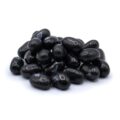Written By Sam Henselijn
Licorice and Its Affect on Gastrointestinal Health. If you’ve ever savored the unique flavor of licorice, you’re not alone. But beyond its distinctive taste, licorice has been praised for its potential health benefits, particularly concerning gastrointestinal health. However, like any dietary supplement or food item, it’s essential to understand both its benefits and potential drawbacks. In this article, we’ll explore the effects of licorice on gastrointestinal health, shedding light on its mechanisms and how to incorporate it safely into your wellness routine.
Licorice root is a millenary herb with many bioactive compounds that have been used for centuries for its medicinal benefits. The extract is also often used to treat gastrointestinal symptoms, such as constipation and acid reflux. But is licorice good for your GI health? Let’s explore licorice and its effects on GI health.
Can licorice candy make you sick?
First of all, it’s important to note that much of what’s labeled as “licorice candy” actually contains little to no licorice at all. The black licorice variety sometimes contains some licorice, but many contain anise instead. Either way, don’t believe everything you read online. candy is meant to be an occasional treat, not used as medicine.
Now, consuming black licorice that contains glycyrrhetinic acid can lower potassium levels, according to PubMed Health. A potassium deficiency is just as dangerous as an excessive potassium level. Symptoms include fatigue, muscle weakness, accelerated heart rhythms, paralysis, and constipation.
Does Black Licorice Cause Diarrhea?
You may have heard so and in some
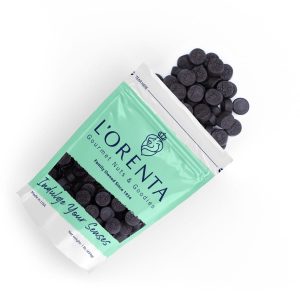
people, it might. We’ll explain: Licorice derived from the roots of the plant Glycyrrhiza glabra contains glycyrrhizin. That particular ingredient has some similarities to aldosterone, a hormone that regulates blood pressure. So any black licorice that contains actual licorice could indeed have a mild laxative effect.
Does Licorice Cause Constipation?
Alternative uses for black licorice include treatment for constipation. So, no. Generally, licorice doesn’t cause the condition. However, eating a lot of candy might lead your system to get clogged up and bloated. And if you have a sensitive gut or suffer from gastrointestinal problems, too much licorice could indeed trigger constipation. Finally, in more serious cases, an excessive consumption of licorice could cause hypokalemia, which can include constipation symptoms.
Does Licorice Cause Acid Reflex?
Acid reflux happens when the esophageal sphincter fails to close completely. Then the acid from the stomach travels back to the esophagus, causing heartburn and discomfort. But licorice, typically, doesn’t cause reflux. In fact, licorice root has been used for many years to treat this condition. However, to get any of these benefits, what is generally recommended is DGL – or deglycyrrhizinated licorice. Unfortunately for all sweet tooths out there, licorice candy has no real medicinal properties.
How Much Licorice is a Safe Amount to Eat?
The FDA cautions anyone over 40 that eating more than two ounces a day of black licorice for over two weeks may be dangerous. It can cause irregular heart rhythm or arrhythmia.
It’s absolutely ok to enjoy licorice candy as an occasional treat, though. Black licorice is definitely safe to eat in small amounts. It just shouldn’t be a part of your daily diet, particularly if you have any underlying conditions that might be worsened by it.
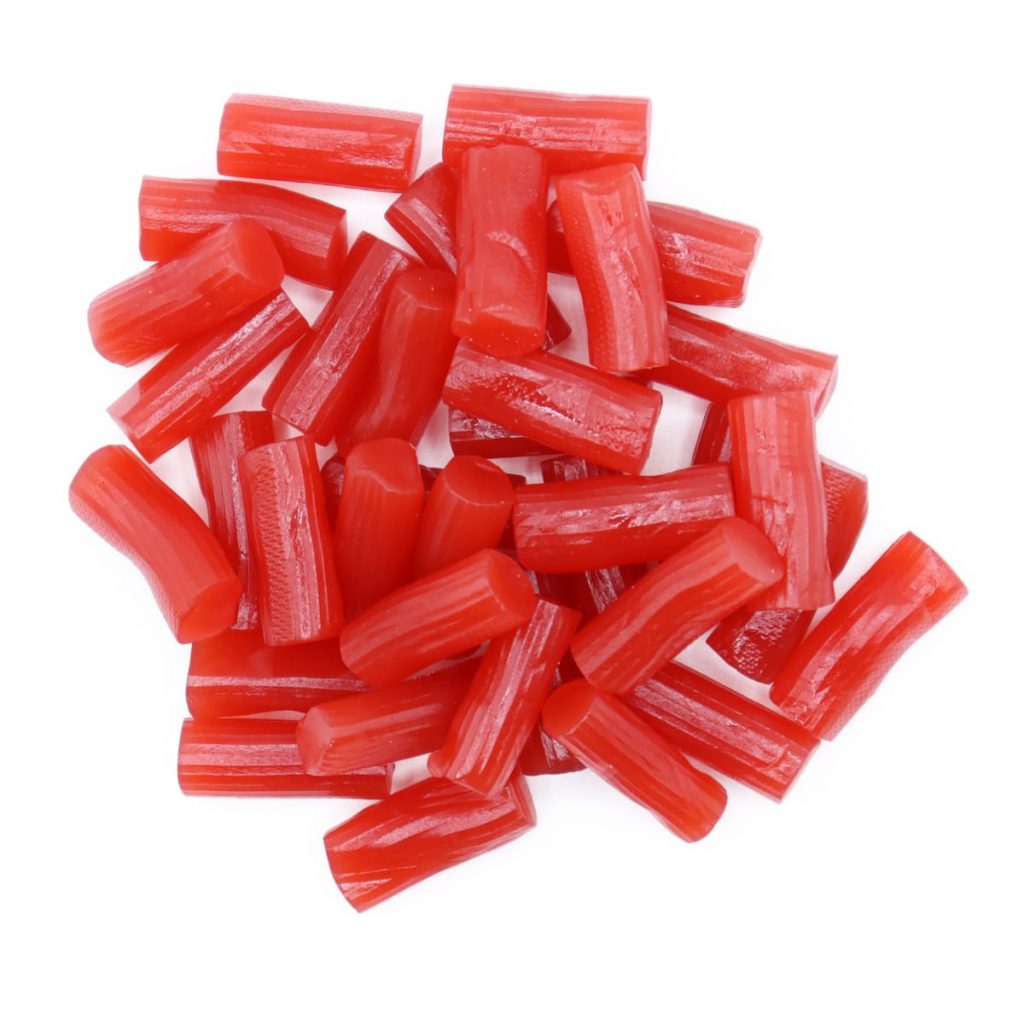
Licorice Root: Licorice and Its Affect on Gastrointestinal Health
If you’re experiencing gut-related issues and thinking that chowing down on licorice candy may make you feel better – don’t. In fact, chances are it’ll make you feel worse. Candy, even of the healthiest variety, should never be thought of as a remedy for any health condition. Instead, you may want to go for licorice root. Its anti-inflammatory properties can potentially relieve the symptoms of indigestion and calm your upset stomach. Just remember there are several side effects associated with licorice, which is why it’s so important to always get your doctor’s approval before self-medicating.
A final caution in regards to consuming licorice is its potential to increase the absorption of drugs. This could lead to increased drug activity or side effects. Hence, it’s best to avoid licorice for a few hours before and after taking prescription medications.
FAQ on Licorice and Gastrointestinal Health
Can licorice candy make you sick?
Yes, especially if it contains glycyrrhetinic acid, which can lower potassium levels, leading to symptoms like fatigue, muscle weakness, and constipation.
Is black licorice a laxative?
Black licorice containing actual licorice (Glycyrrhiza glabra) can have a mild laxative effect due to glycyrrhizin, which affects blood pressure regulation.
Does licorice cause constipation?
Generally, licorice does not cause constipation and can be used to treat it. However, excessive consumption or a sensitive gut may lead to constipation.
Does licorice cause acid reflux?
Licorice typically does not cause acid reflux and has been used to treat it. Deglycyrrhizinated licorice (DGL) is recommended for these benefits, not licorice candy.
What is a safe amount of licorice to consume?
The FDA advises that consuming more than two ounces of black licorice daily for over two weeks can be dangerous for anyone over 40, potentially causing irregular heart rhythm.
Can licorice candy be considered a remedy for gastrointestinal issues?
No, licorice candy should not be considered a remedy for health conditions. Licorice root may help due to its anti-inflammatory properties, but always consult a doctor before self-medicating.
Are there any precautions when consuming licorice?
Yes, licorice can increase the absorption of drugs, leading to increased activity or side effects. It’s best to avoid licorice a few hours before and after taking prescription medications.
What Are the Main Health Benefits of Licorice
Licorice root offers significant health benefits, including anti-inflammatory properties that can relieve indigestion and soothe upset stomachs. It’s used to treat gastrointestinal symptoms like acid reflux and constipation. Additionally, licorice has been found to support upper respiratory health and may possess antimicrobial and antiviral effects, enhancing overall immune function.
Sam Henselijn Author’s Biography – Meet L’Orenta Nuts CEO
Copyright 2024 L’Orenta Nuts
L’Orenta Nuts proudly holds the SQF food safety certification, symbolizing our unwavering dedication to upholding the highest standards of food safety and quality. This certification guarantees that our products undergo rigorous scrutiny, ensuring transparency, traceability, and adherence to global food safety regulations for the utmost consumer confidence.
L’Orenta Nuts has the HACCP (Hazard Analysis and Critical Control Points) certification is a systematic approach to identifying, evaluating, and controlling food safety hazards. It ensures that food products are produced and handled in a manner that minimizes risks and complies with safety standards.
Our GMP (Good Manufacturing Practices) certification ensures that a manufacturing facility adheres to comprehensive quality and safety standards while producing pharmaceuticals, food, and other consumer goods, promoting consistency, quality, and compliance with regulatory requirements.
L’Orenta is an FDA-approved manufacturing facility and has met the rigorous standards set by the U.S. Food and Drug Administration. It demonstrates compliance with regulations, ensuring the production of safe and high-quality food products.
Copyright 2022 L’Orenta Nuts LLC – Revised March 2024




